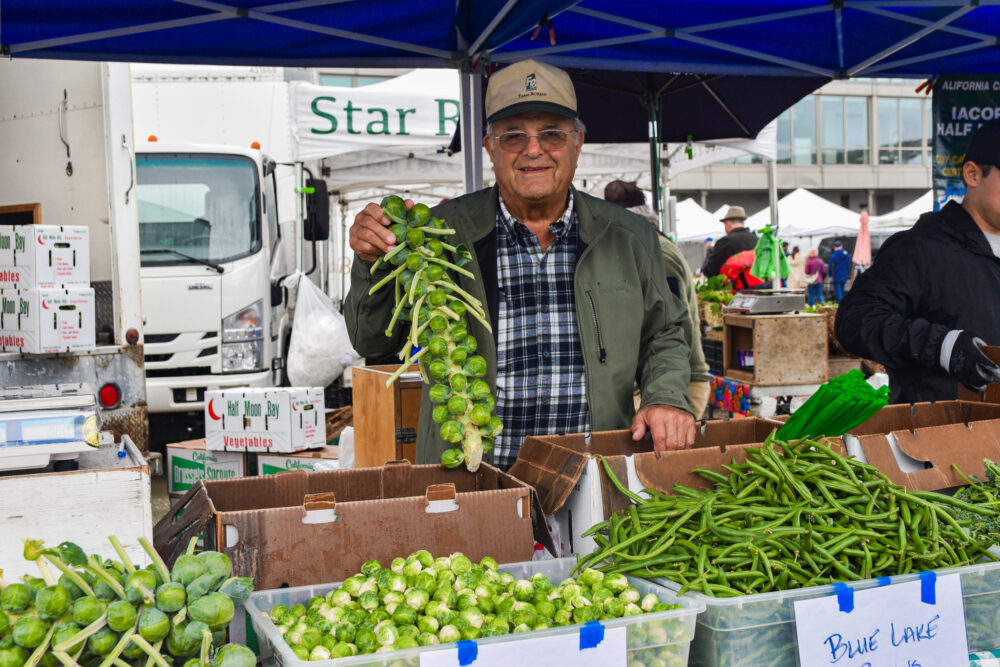Iacopi Farms

People
Louis Iacopi and his son, Mike, along with 2 full-time and 15 seasonal employees
Farmland
165 leased acres in Half Moon Bay, about 35 miles to San Francisco
About
Upon his arrival from Italy in 1939, Louis’ father, Michael, settled in Pescadero, where he learned to farm. In 1962, Louis began his farming career with 200 acres in Half Moon Bay. He farmed there until 1979, when he moved the farm to its current location. Until recently, he grew produce mainly for the wholesale markets, but low returns encouraged him to sell more of his produce directly to consumers. To maintain soil fertility, the Iacopis use synthetic fertilizers in combination with cover crops and compost. They use herbicides only when necessary—usually in the winter, when the ground is too wet for the tractors. At the Ferry Plaza Farmers Market, the Iacopis are known for their beans, peas, artichokes, and leafy greens.
